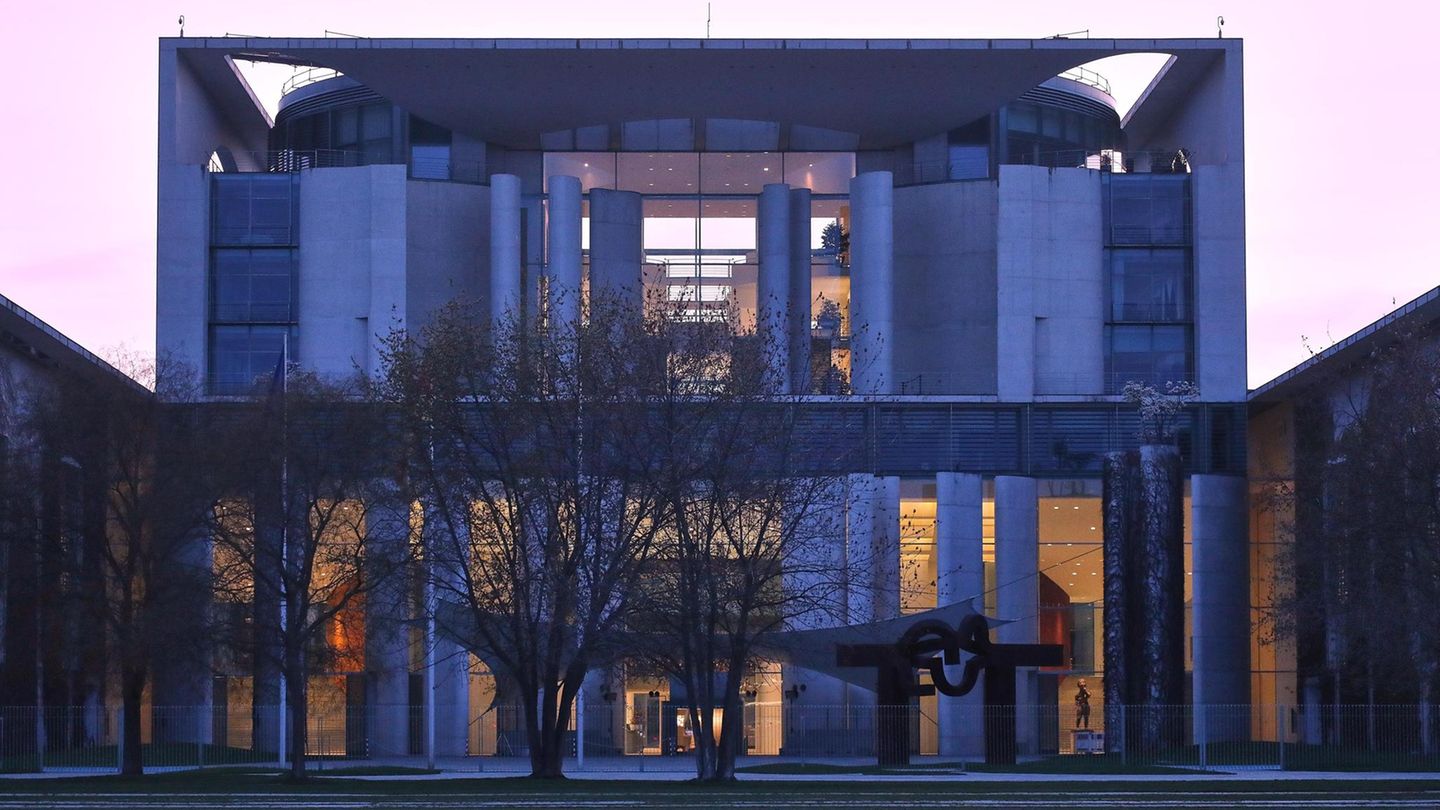Friedrich Merz
What can go wrong now? The timetable for the chancellor’s election
Copy the current link
Add to the memorial list
Nothing stands in the way of the chancellor election after the SPD base has cleared the way for black and red. But Friedrich Merz is not yet at the goal. The timetable.
For the day exactly six months after the previous government of SPD, Greens and FDP has broken, Germany should again get a government capable of acting with its own majority. On Tuesday, May 6th, Friedrich Merz faces the Bundestag deputy. The CDU politician is within reach his goal of becoming the tenth Chancellor of the Federal Republic. “Then in a new government we can finally start solving the problems of our country step by step,” said the 69-year-old recently.
What else should go wrong?
The penultimate big hurdle has officially approved the SPD members on Wednesday to enter the smallest grand coalition of history as a junior partner. But before Merz’s dream of the Chancellery is true, there are still a few central appointments – and possibly some surprises. That is the timetable.
The weekend: personnel poker and plans for a shortened break
The SPD leadership fixes your personnel table: Who will be what with black and red? Party and faction leader Lars Klingbeil should take over the team line-up, the names are officially announced on Monday. Klingbeil himself plans to go to the Merz cabinet as a vice chancellor and Federal Minister of Finance. There could be tough conversations: there are too many social democrats who want to become something, but too few top posts. The parity and proportion of state associations such as wing membership and gender also play a role.
You also sort yourself in the future Chancellor Party CDU, and this is apparently already for the first joint cabinet meeting with the future coalition partner: According to “Politico”, this could take place on Tuesday afternoon if all ministers are sworn in. The signal would be clear: black and red immediately gets to work. As a result, you should also be discussed in the lively exchange about a shortened Bundestag summer break. Thorsten Frei, future Chancellor’s Office and previous Union faction managers, had brought them into play.
Monday: SPD Minister, coalition agreement and Scholz-Fein
At twelve o’clock, the CDU, CSU and SPD want to sign their coalition agreement in the Gasometer in Berlin-Schöneberg. Before that, the Social Democrats officially present their ministers, probably in the Willy-Brandt-Haus, the party headquarters. The short-before-knapp cabinet list can expect some surprises and possible controversy. There should also be evidence of how the party and faction are not even names.
In the afternoon, after the signing of the black and red contract, the Bundestag factions of the CDU/CSU and SPD come together to meet meetings. The Union starts at 3 p.m. Then Jens Spahn is to be elected new parliamentary group leader-he follows Fast Chancellor Friedrich Merz-and Steffen Bilger as the first parliamentary managing director who takes over the office of the designated head of chancellor Thorsten Frei. The chairpersons of the Bundestag committees should only be determined in the coming weeks.
The SPD parliamentary group meeting begins at 5:30 p.m. The Social Democrats are also likely to make the first personnel decisions there: after all, the parliamentary group leader becomes vacant with Klingbeil’s change to the cabinet. But are the comrades also receive a prominent visitor: Friedrich Merz?
At least that’s how Angela Merkel handled it in 2005. On the eve of her election in the Bundestag, Merkel visited the SPD parliamentary group in which there were many skeptics. She managed to break the ice cream, among other things with the announcement that she was not only there for the Union, but also for the SPD MPs. “If you have a problem or a question, please do not contact me about the newspaper. Go to your parliamentary group leader, and if he says you should go to me, do that too.”
In the late evening, around 9 p.m., the managing Chancellor Olaf Scholz is traditionally adopted by the Bundeswehr with a large tap. The military ceremony is considered the highest appreciation that German armed forces are given to a civilian person. Federal Defense Minister Boris Pistorius, SPD, will give a speech, as will the Chancellor himself.
Highlight, however, is the so -called serenade, in which up to four pieces of music are played for the honored person. Scholz would like the Beatles song “in My Life”, an excerpt from the “2nd Brandenburg concert” by Johann Sebastian Bach and “Respect” by Aretha Franklin, as the “Spiegel” had first reported. His predecessor Angela Merkel wished Nina Hagen, for example, in her big tapping “you forgot the color film”.
Tuesday: the chancellor’s election – but with how many electoral courses?
On Tuesday, the Union and SPD deputies say: getting up early, after all, it is a big day. At 8 a.m., the parliamentary groups come together to form one session. The Bundestag session is expected to begin at 9 a.m. Central program item: the chancellor’s election.
Merz still has to tremble. Because to be elected, he needs a so -called chancellor majority, i.e. the majority of all votes of the MPs elected to the Bundestag. Union and SPD are only 12 votes above this brand. Keep, considerably scarce, considering possible failures from illness or even deviators – because the first of three possible voting groups takes place, not by name.
In the Union and the SPD you are currently not seeing any reason. But what if some MPs want to set an example? There are disappointed in both factions – be it because of the coalition agreement or because you went out empty when the posts were allocated. And finally, as a MP you are only committed to your conscience. It would be the first time that a Federal Chancellor did not come to the necessary majority on the first attempt.
In any case, Merz does not need to hope for support from the Greens. Party leader Felix Banaszak has already made it clear that the Chancellor should not build on votes from the Green Group in Spe: In the past few weeks, except when the debt package was adopted, Merz has not struggled to vote for the Greens. If Merz does not reach the necessary majority in the first ballot, a second ballot must take place within two weeks, it is regulated in the Basic Law.
If everything goes smoothly, first Merz, then the future ministers in Bellevue Castle, are expected, where Federal President Frank-Walter Steinmeier appoints the Chancellor and his cabinet. Finally back to the Bundestag to swear the oath of office. And then it starts.
Source: Stern
I have been working in the news industry for over 6 years, first as a reporter and now as an editor. I have covered politics extensively, and my work has appeared in major newspapers and online news outlets around the world. In addition to my writing, I also contribute regularly to 24 Hours World.






